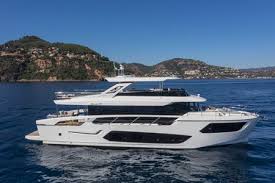Exploring Malta: A Jewel in the Mediterranean

Introduction to Malta
Malta, a small archipelago in the Mediterranean Sea, is gaining recognition for its rich historical significance and cultural diversity. As a popular tourist destination, it attracts millions of visitors each year, celebrating its heritage and natural beauty. Understanding Malta’s relevance in the context of European history and contemporary society is crucial for appreciating its role on the global stage.
A Brief Historical Overview
Malta’s history spans over 7,000 years, marked by various civilizations including the Phoenicians, Romans, Arabs, and Knights of St. John. Each culture has left an indelible mark, contributing to the island’s architectural splendor and ethnic diversity. In 1530, the Knights of St. John fortified the islands, leading to the construction of impressive structures such as St. John’s Co-Cathedral and the Grand Master’s Palace in Valletta, the capital. In recent history, Malta gained independence from British rule in 1964 and later became a member of the European Union in 2004, further solidifying its position in European affairs.
Current Events and Cultural Significance
Recently, Malta has been in the spotlight due to its strategic geographic location and political importance within the EU and Mediterranean regions. The island serves as a bridge between Europe and North Africa, making it a focal point for trade and diplomacy. In 2023, Malta has hosted several international summits addressing Mediterranean security, migration issues, and climate change, highlighting its role as a mediator in regional conflicts. Furthermore, its rich cultural scene, including arts festivals, gastronomy, and traditional celebrations, attracts global attention and investment.
Future Prospects
Looking ahead, Malta aims to balance its growth as a tourist destination with sustainable development. The government is focusing on enhancing infrastructural capabilities while preserving its heritage sites and natural landscapes. Efforts are being made to protect the blue waters and biodiversity surrounding the islands, which are crucial for their economy and tourist appeal. As Malta continues to evolve, it remains committed to fostering cultural exchanges and enriching its ties with international communities.
Conclusion
Malta is not only a stunning travel destination but also a nation steeped in history and cultural richness. Its strategic location, diverse heritage, and evolving role in international relations keep it relevant on the global map. As it embraces the future while honoring its past, Malta is set to remain a jewel of the Mediterranean, inviting exploration and engagement from travelers and historians alike.







